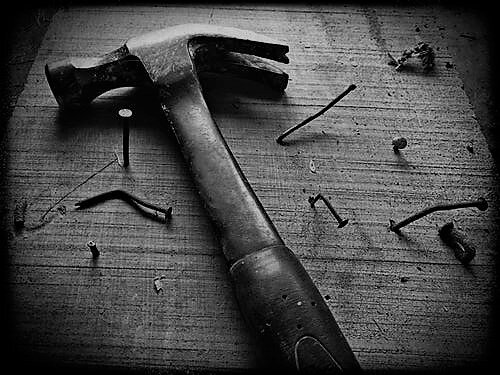Craft-Ritual Sub-system
The Craft-Ritual Subsystem is a major part of Beyond the Fall. It is the primary means by which Crafting and Rituals are performed -- the end result is the creation of in-game items, useful enhancements, and/or certain special effects.
Craft skills are non-magical, but can be just as fantastical as spellcraft. Usually, they involve the creation of an in-game item, such as a sword, a firearm, or a lock. However, they can also involve the imbuing of special enhancements unto a person, intense research, or even curing them of disease.
Ritual Skills are the magical counterparts to Craft Skills. They usually involve the imbuing of magical enhancements unto individuals but they can also involve the creation of items, the metamorphosis of material, or even the warding of an entire building from harm.
Of note are several factors within this subsystem.
Non-combat: Craft-Rituals are intended for use outside of combat, during what is sometimes called “downtime.” They require at least 10 minutes of role-play, although they are allowed to go up to 30 minutes if desired.
Limited frequency: Once a Craft or Ritual is completed, a character may not perform another until a character has rested and the current Period has expired.
Logistical burden: Craft-Rituals usually require some logistical paperwork. It can be as involved as the introduction/inspection of a new item or as simple as writing down an Attunement upon a character sheet.
Skill and Component requirements: Some items or spells have requirements before they can be learned and/or used. Similarly, some Craft-Ritual Skills require the expenditure of components to be used.
General Craft/Ritual Procedure
Generally speaking, most Crafting and Rituals follow the below steps:
Step 0: Fill out a Craft-Ritual sheet with the appropriate information such as what Skills are being used, if they are Augmented, and who is using the Skills. Show this sheet to Game Staff. The Logistics room will have unfilled sheets.
Step 1: Have Game Staff sign off on any new Attunements, take any used Components, or bestow Item Tags.
Step 2: Perform 10 or more minutes of roleplay that is appropriate to the task at hand. Crafting an item may require working with tools, cloth, junks, or herbs. Performing a Ritual may involve meditation, chanting, dance, or a similar activity.
Step 3: At the end of the role-play, invoke the name of the Skill involved. Resolve the effects that do not require any Game Staff intervention.
Upkeep and Deterioration
In the World Beyond the Fall, Humanity must struggle to survive and even steel will fail if left unattended and unkept.
Upkeep every 3 Attended Events: Most items require Upkeep approximately every 3 Attended Events. The Upkeep of an item is the same process and the same cost as creating said item. Some Skills from the Junker Discipline and the Transmutation Sphere allow for their users to Upkeep existing items, but not create them.
Advanced and Superior become Basic items: Without Upkeep, an Advanced or Superior item without Upkeep loses all Augments and becomes a Basic version of its kind.
Safety Inspection required: Basic-quality items do not expire after 3 Attended Events. However, the props for these items must be re-inspected and re-approved for safety -- this is more the case for combat related items such as Weaponry and Armor, than for non-combat items. This is a safety issue for the users of these items and those they would use it upon.
Thus any item that reaches two seasons must get a new item tag if it requires inspection from Game Staff (e.g. weapons or armors).
Important Craft-Ritual concepts:
Affinity: Affinity entries modify the Component cost of an item to make them easier to craft. They will include a type, such as Water or Earth -- this type can be also used to make/upkeep the item.
Attunement (ATN): An individual may have a maximum of 6 Attunements at a time, written on the back of one’s character sheet. Certain upgrades and augments to the local infrastructure may increase available Attunements.
Afflictions such as Diseases and Curses also occupy Attunements and may even render beneficial Attunements inert. Once an Affliction occupies an Attunement, that Attunement is unusable for the remainder of the Month -- however, if said Affliction is cured, this cure makes an individual immune to that Affliction for the rest of the month.
Component Cost: Some Craft-Rituals require the expenditure of components (CMP). For these, the components involved must be documented and signed-off by a Staff member.
Group Craft-Ritual sheet: This is a special out of game document that helps Game Staff track the logistics of a Ritual-Craft action. Groups and individuals performing a Craft-Ritual action need to fill this out and submit this to Game Staff.
Game Staff Sign-off: Any time a Component is expended, there must be one or two Game Staff Sign-off. This involves the initials of the GM, the Period of the Craft-Ritual and the month/year.
Item Expiration: Advanced and Superior items expire unless upkeep is maintained, reverting to the Basic versions of themselves -- still usable but without special properties. When this happens, it loses all Augments and becomes a Basic version of its kind. Augments may be reapplied to an expired item at no extra or discounted cost.
Item Tag: When an in-game item is made, it usually comes with an item tag. Most item tags will come with colors that assist the Staff in determining whether they have expired or not.
Inspection Tags: When a weapon or shield is created or maintained, it must be inspected for safety regularly. Use the following colors to determine when an item needs inspection
Red needs inspection in Spring (Mar-May)
Blue needs inspection in Summer (June-Aug)
Green needs inspection in Autumn (Sept-Nov)
Yellow needs inspection in Winter (Dec-Feb)
Another way to look at is below:
Spring = valid Blue & Green
Summer = valid Green & Yellow
Autumn = valid Yellow & Red
Winter = valid Red & Blue
Market Hour
This happens at least once during an Event. During a Market Hour:
A bell is rung or it is otherwise announced to all. This can be at the Cantina or elsewhere.
Several Trader/Merchant NPCs arrive to facilitate Component barter/substitution. Their supplies will be limited, although certain Town Expansions may improve this.
Crafting and Rituals are Augmented for either bonus Output or bonus Quality.
1 or 2 Game Staff is present to facilitate signing off on these activities and receiving expended Components.
Characters may expend Components to engage in Self-Training, with Game Staff signing off on Skill gain.

